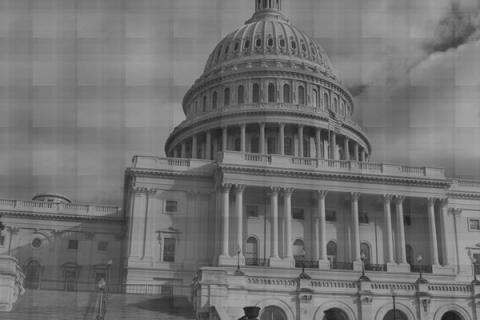While its reputation primarily rests in providing money-saving deals to online bargain hunters, "Cyber Monday" provides California's legislature an opporunity to seize additional taxes from the state's resident online shoppers.
This year, as California faces a worsening financial crisis, state officials are looking to squeeze every penny they can get and are finding out that online shoppers owe them a whole lot of money.
The Sacramento Business Journal reports that the Golden State's Internet shoppers owe some $1.1 billion dollars in unpaid taxes for past online purchases.
The "use tax" has been around since 1935. It particularly zeroes in on purchases from retailers who don't collect sales taxes and who don't have a physical presence in California. The California Board of Equalization establishes use tax guidelines, limiting its application to certain tangible items.
With the Internet coming into play, the tax eventually applied to online purchases.
Betty Yee, head of California's Board of Equalization, says implementing the tax is a way "to eliminate the price advantage out-of-state retailers would have over California business."
The Business Journal goes on to report that the typical household in the state owes $47 a year in unpaid use tax. Meanwhile, the typical business owes $166 per year.
Minus cost of living adjustment considerations for state workers and programs, California faces a possible $23 billion deficit in 2012.
It might be easy for government officials to subtlety point the finger at California's residents for having a part in the state's budget woes, but $1.1 billion in back taxes from online shoppers is really small potatoes in a budget crisis due mostly to the legislature's mishaps.
As stated in a Wall Street Journal opinion piece earlier this year, the remedy to California's budget problems doesn't rest in higher taxes or spending.
The hinderance of raising tax after tax on citizens and businesses is partially what's contributed to the state's financial problems in the first place. The budget proposal agreed to earlier this year still possesses many flaws when it comes to providing incentives for businesses to remain in the state.
Instead of looking for lost revenue from such burdensome taxes like the use tax, the legislature should assess what factors will make California economically friendly again. How can they attract consumers to buy in California without penalizing them for their purchases?
Equally important, what can the legislature do to make California a healthy competitor?
Reduce both loathsome taxes and spending. Only then will residents be encouraged to create businesses and boost the economy within the state.
As long as costs to remain in the state are high for entrepreneurs and its residents, California will continue to lose confidence from them. Both businesses and residents will continue leave the state, abandoning the legislature in the dark to solve its own problems.
With the Internet coming into play, the tax eventually applied to online purchases.
Betty Yee, head of California's Board of Equalization, says implementing the tax is a way "to eliminate the price advantage out-of-state retailers would have over California business."
The Business Journal goes on to report that the typical household in the state owes $47 a year in unpaid use tax. Meanwhile, the typical business owes $166 per year.
Minus cost of living adjustment considerations for state workers and programs, California faces a possible $23 billion deficit in 2012.
It might be easy for government officials to subtlety point the finger at California's residents for having a part in the state's budget woes, but $1.1 billion in back taxes from online shoppers is really small potatoes in a budget crisis due mostly to the legislature's mishaps.
As stated in a Wall Street Journal opinion piece earlier this year, the remedy to California's budget problems doesn't rest in higher taxes or spending.
The hinderance of raising tax after tax on citizens and businesses is partially what's contributed to the state's financial problems in the first place. The budget proposal agreed to earlier this year still possesses many flaws when it comes to providing incentives for businesses to remain in the state.
Instead of looking for lost revenue from such burdensome taxes like the use tax, the legislature should assess what factors will make California economically friendly again. How can they attract consumers to buy in California without penalizing them for their purchases?
Equally important, what can the legislature do to make California a healthy competitor?
Reduce both loathsome taxes and spending. Only then will residents be encouraged to create businesses and boost the economy within the state.
As long as costs to remain in the state are high for entrepreneurs and its residents, California will continue to lose confidence from them. Both businesses and residents will continue leave the state, abandoning the legislature in the dark to solve its own problems.
